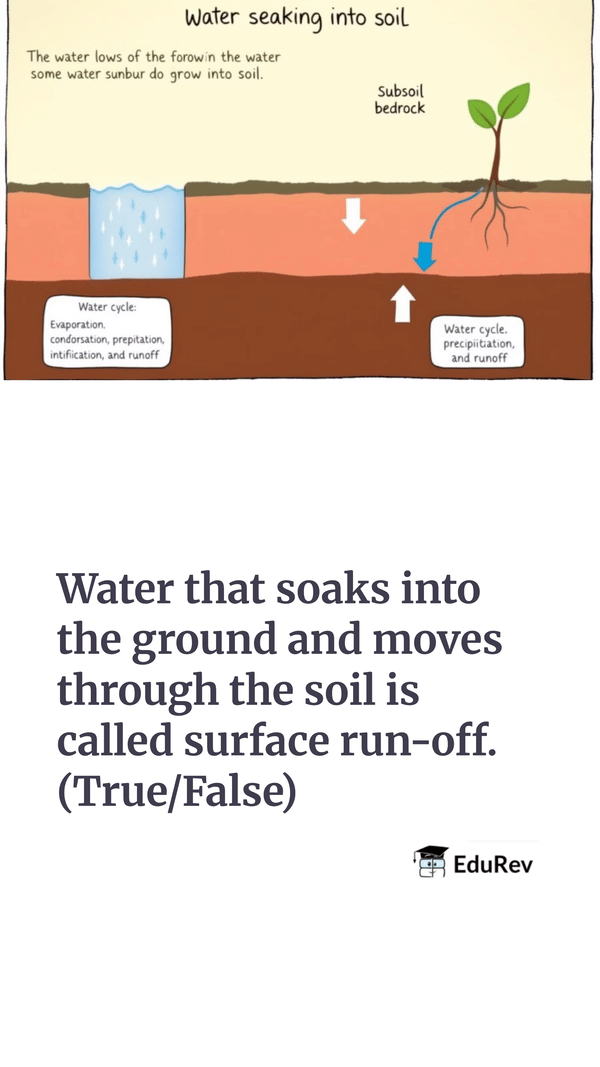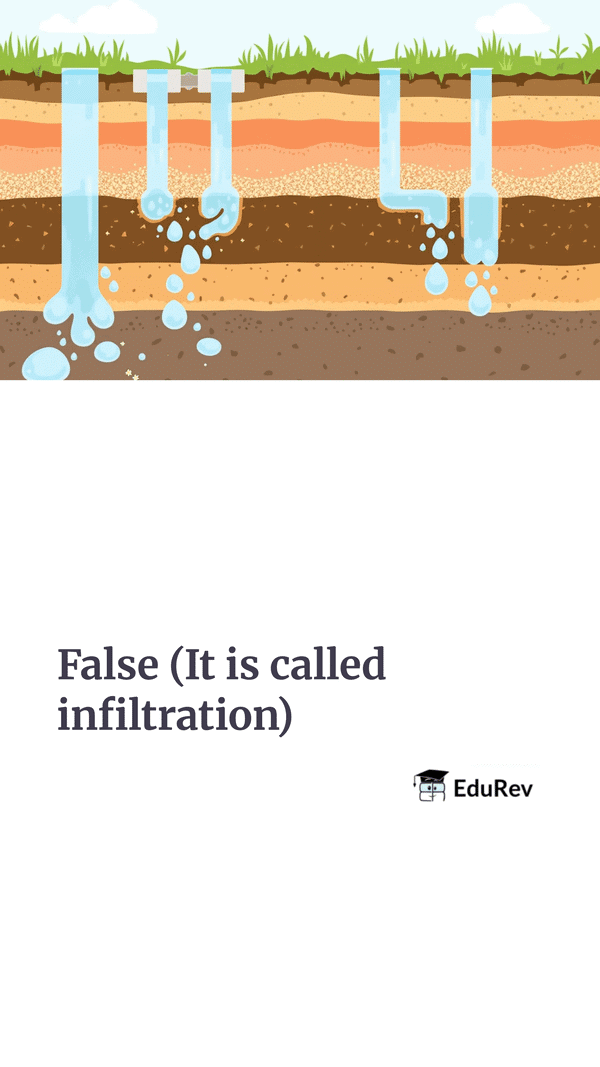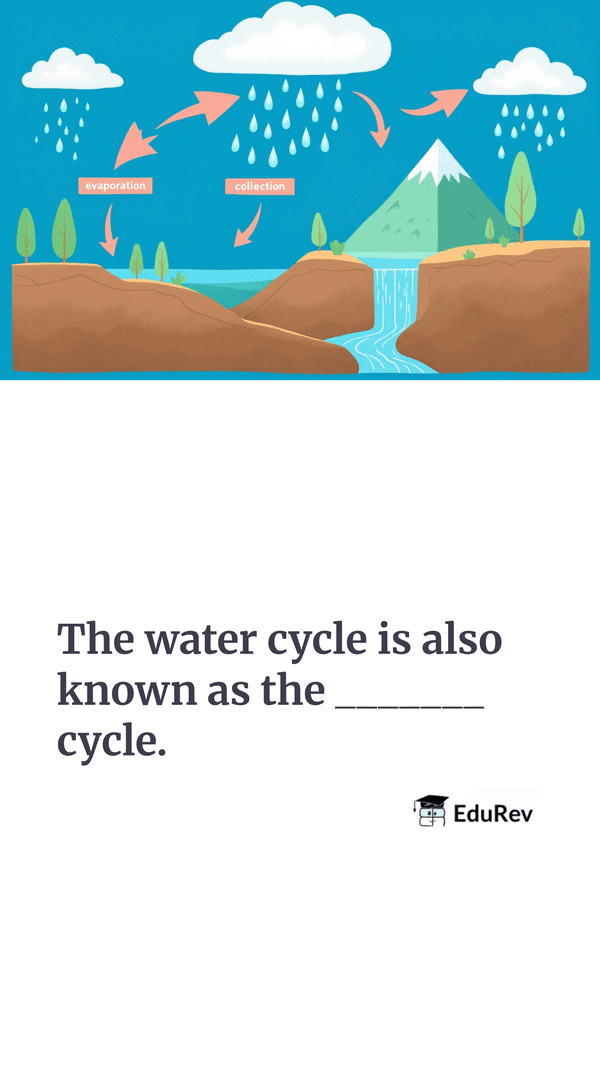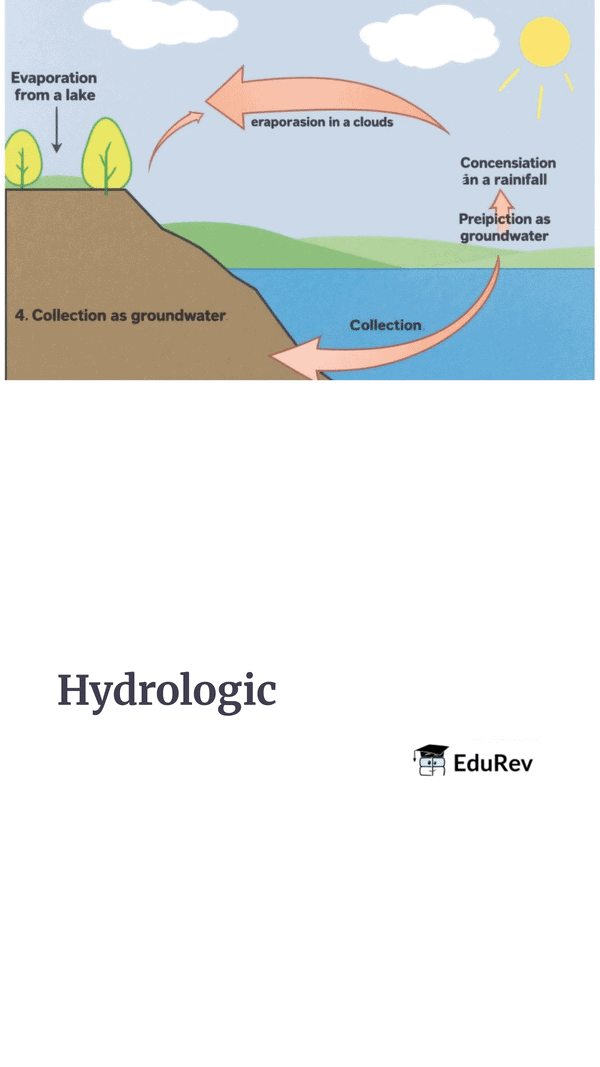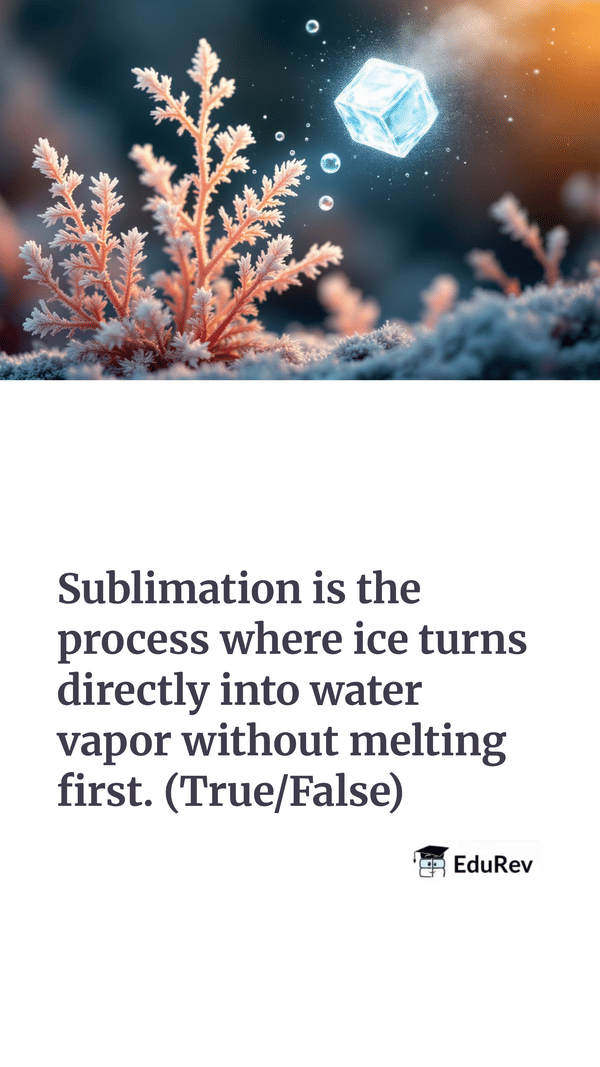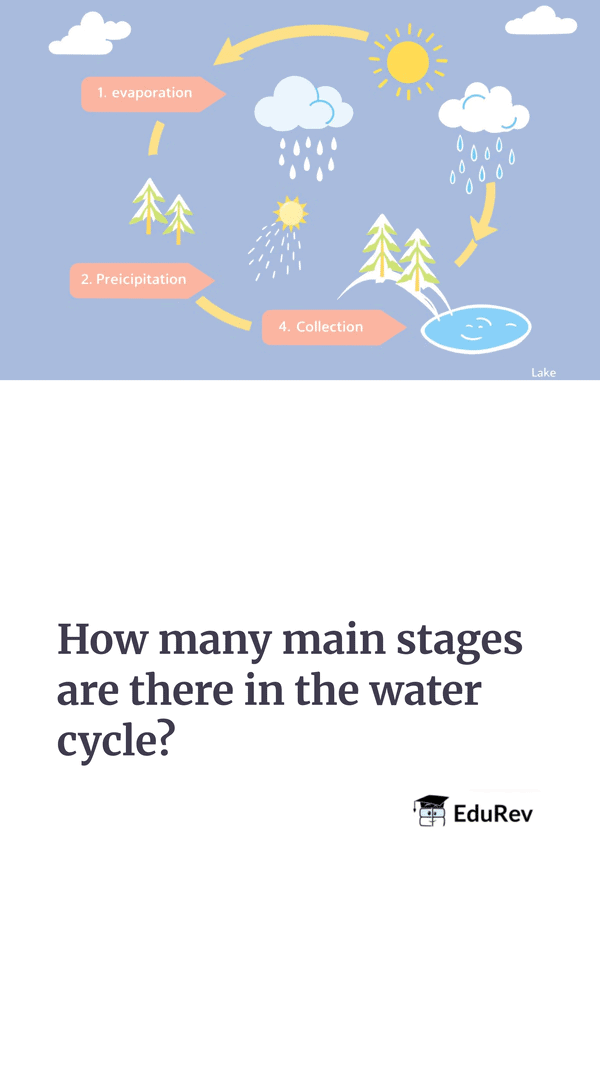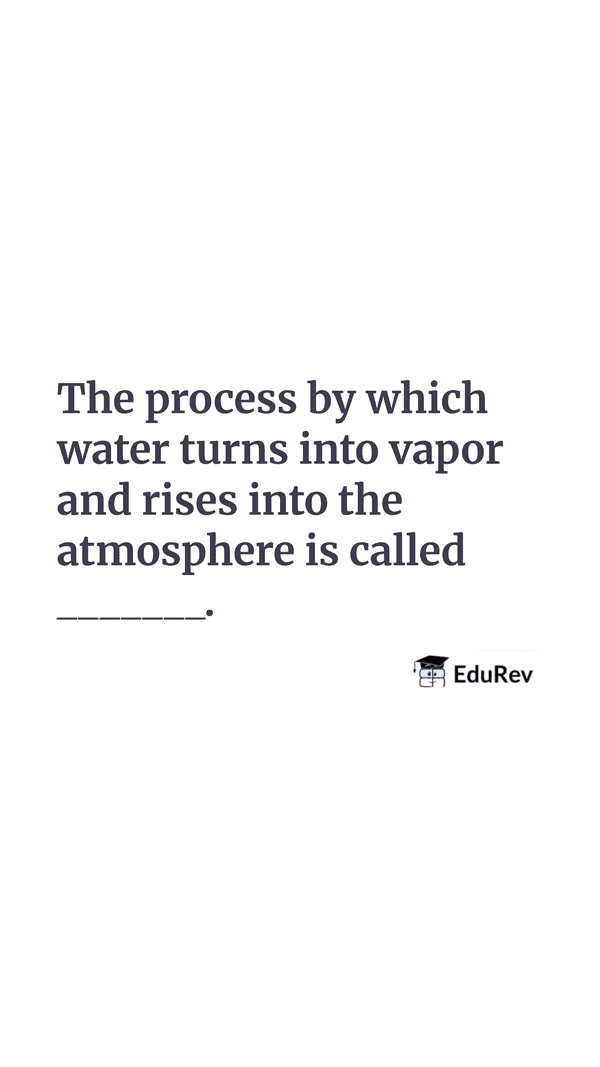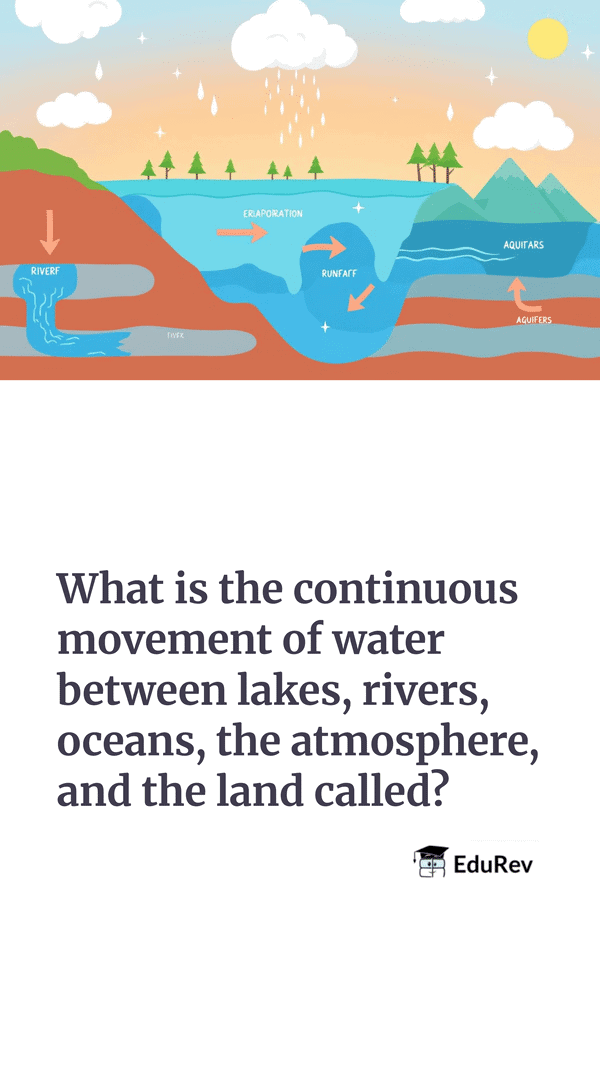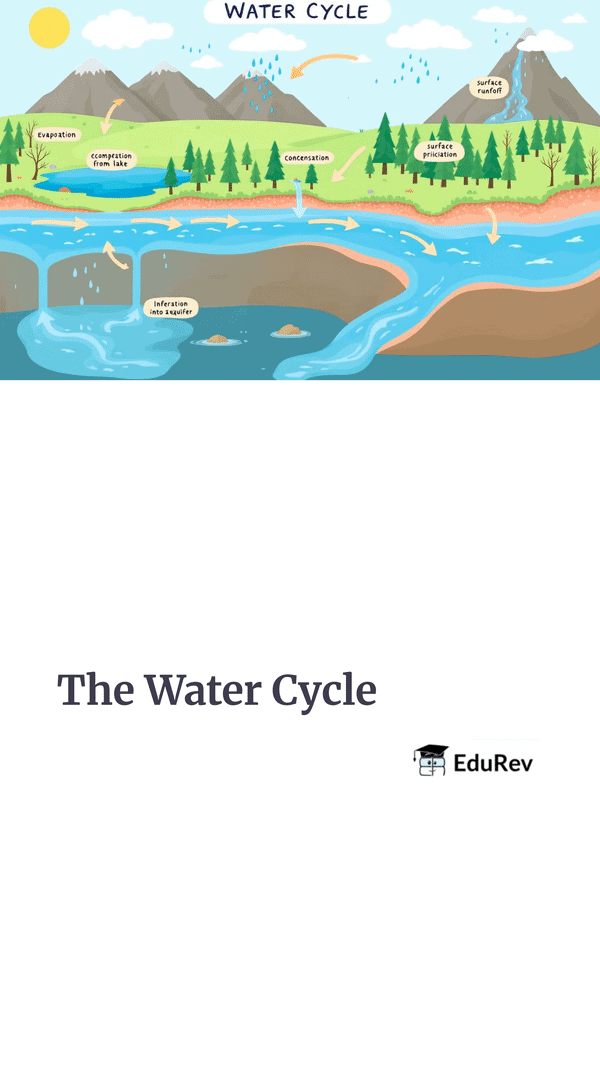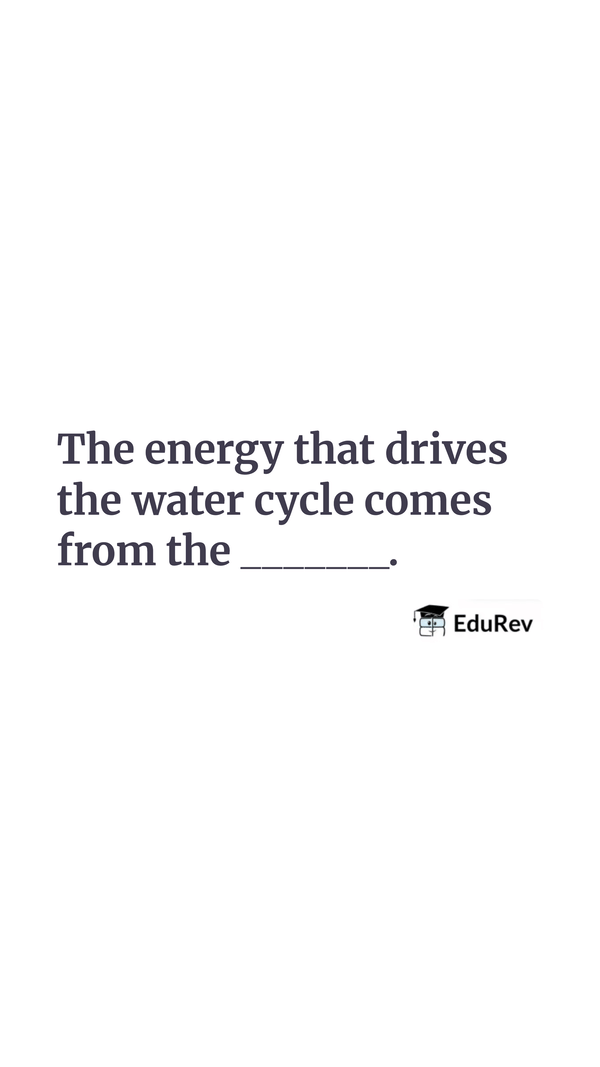 Unlock all Flashcards with EduRev Infinity Plan Starting from @ ₹99 only
|
Class 1 Exam > General Knowledge for Young Learners > Flashcards: The Water Cycle
|
52 videos|107 docs|40 tests
|
FAQs on Flashcards: The Water Cycle Flashcard - General Knowledge for Young Learners - Class 1
| 1. What are the main stages of the water cycle? |  |
Ans. The main stages of the water cycle include evaporation, condensation, precipitation, infiltration, and runoff. Evaporation occurs when water from oceans, rivers, and lakes turns into vapor due to heat from the sun. This vapor rises and cools, leading to condensation, where it forms clouds. When the clouds become heavy, precipitation occurs in the form of rain, snow, sleet, or hail. Some of this water infiltrates into the ground, replenishing groundwater supplies, while the rest runs off into bodies of water, continuing the cycle.
| 2. How does human activity affect the water cycle? |  |
Ans. Human activities, such as urbanization, deforestation, and agriculture, significantly impact the water cycle. Urbanization leads to increased runoff due to impervious surfaces like roads and buildings, reducing groundwater recharge. Deforestation can disrupt local rainfall patterns, as trees play a crucial role in transpiration and maintaining humidity. Agriculture may lead to over-extraction of water resources and pollution, further altering the natural balance of the water cycle.
| 3. What is the role of the sun in the water cycle? |  |
Ans. The sun plays a vital role in the water cycle by providing the energy necessary for evaporation. It heats water bodies, causing water molecules to gain energy and transition from liquid to vapor. This process initiates the cycle, as the vapor rises into the atmosphere, cools, and eventually condenses to form clouds, contributing to precipitation.
| 4. Why is the water cycle important for the environment? |  |
Ans. The water cycle is essential for maintaining ecosystems and supporting life on Earth. It regulates climate by distributing heat and moisture, ensures the availability of freshwater for drinking and agriculture, and supports plant growth. Additionally, the cycle helps to maintain the balance of natural habitats, contributing to biodiversity and ecological stability.
| 5. How does climate change impact the water cycle? |  |
Ans. Climate change affects the water cycle by altering precipitation patterns, increasing evaporation rates, and changing the frequency and intensity of storms. Warmer temperatures can lead to more evaporation, resulting in drier conditions in some areas while causing heavier rainfall and flooding in others. These changes can disrupt water availability, impact agriculture, and exacerbate droughts and floods, posing challenges for water management and ecosystems.
Related Searches




